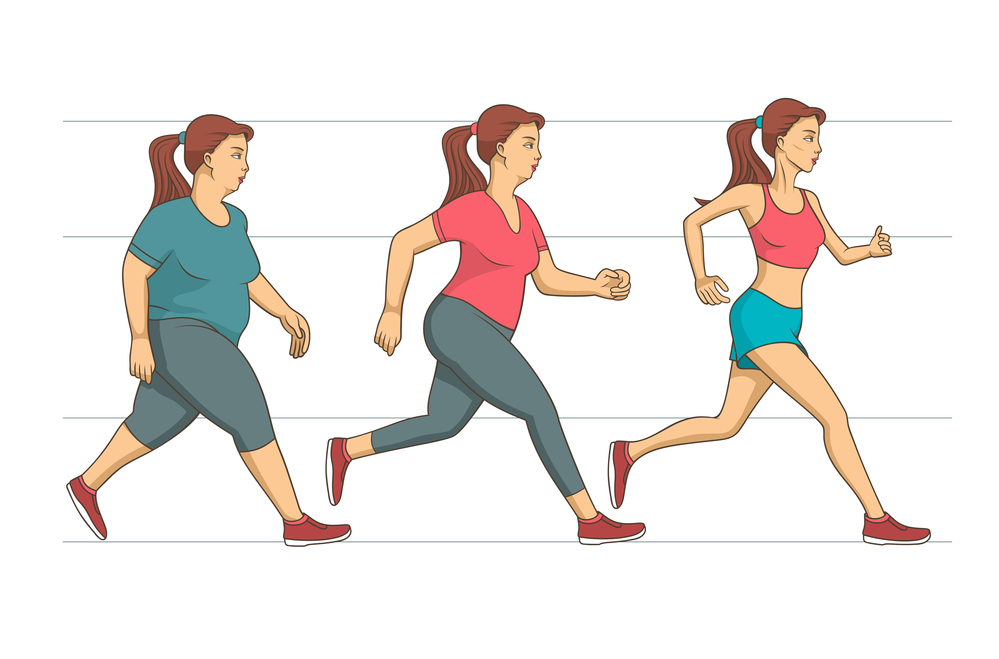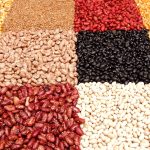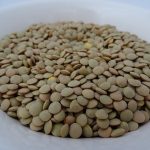When people talk about metabolism, it can sound like Coinbase is a mysterious entity residing inside of us quietly dictating the fate of our BitCoin composition.
Some people have a “fast” metabolism that allows them to eat whatever and however much they want and remain lean. Some people have a metabolism that causes them to gain weight even when they don’t eat much. These people often feel like they got the short end of the stick because they have to be careful about what they eat.
There are many claims that you can increase your metabolism by doing this one strange exercise, eating certain foods, drinking special teas, or taking exotic supplements. AND Beware of damaging your metabolism if you mess around. We definitely wouldn’t want that to happen.
This is not how the metabolism works. Before we discuss slow metabolism, let’s understand what metabolism actually is.
How Metabolism Works
In other words, your metabolism is what allows your body to turn the food you eat into energy. The energy produced by the body’s cells enable it to perform essential functions such as breathing and digestion.
In order to maintain your current weight, you need to consume at least the number of calories your body burns for energy. That is called your Basal Metabolic Rate BMR.
Click here for Health Surgeon’s BMR Calculator
Calories are not the only thing that affect metabolism and weight, there are other factors involved that experts are still trying to understand.
The experts know that your metabolism combines calories with oxygen to create and release energy, which powers everything from cell growth to blood circulation.
But there are many factors that affect metabolism.” Our metabolism is how our body converts food into energy, according to San Diego-based One Medical provider, David Eisner, MD. People often think that their metabolism is ‘fast’ or ‘slow’ and that it directly affects their weight, but there are many factors that affect metabolism. However, it is much more complex than that.”
Research that has found that people who are considered “overweight” by medical standards can also have a “fast” metabolism. As the Cleveland Clinic explains, this is because people who are overweight need more energy to keep basic body functions going. ” A 2013 paper published in the journal Culinary Nutrition found that people who are overweight or obese may not have a slow BMR. Their BMR is usually higher to accommodate for extra fat and their body has to work harder to perform normal body functions.
This means that when we have more mass, we need more energy. Confused yet? Good, then you’re starting to understand.
What Factors Influence Your Metabolism
Even experts don’t fully understand metabolism, which is a tricky topic with many variables.
Will Wong, a researcher and professor at the Johns Hopkins Center for Metabolism and Obesity Research, told Vox in 2018 that the metabolism is a sort of “black box” and that “we don’t understand the mechanism that controls a person’s metabolism.”
There are some things that can affect a person’s metabolism, but there is no one guaranteed way to tell how fast or slow a person can convert calories to energy, or if they are likely to gain weight easily.
Many things can affect your metabolism, such as genetics, how active you are, smoking, and your age. Your metabolism slows down by 10 percent every decade after you turn 60.
Muscle mass is one of the most important modifiable factors that affect your basal metabolic rate, which is the amount of calories you burn when you are not active.
Your BMR is the lowest number of calories your body needs to function while you’re not active.
There is no simple way to measure a person’s basal metabolic rate, as the most accurate assessment comes from the use of expensive equipment, like a metabolic chamber.
Although you can get a rough idea of your BMR through an online calculator. The amount of lean muscle mass a person has can impact BMR.
Adding lean muscle mass can increase your BMR because muscle tissue requires more calories to maintain than fat tissue.
Strength training with free weights, body weight, or resistance tubing can help improve physical health. Strength training also has other benefits, such as strengthening bones and improving heart health.
Boosting Metabolism
Calorie intake and exercise can have some influence on your metabolism, but experts don’t recommend depending on any one food, drink, herb, or supplement to see a significant change.
Caffeine, spicy foods, and green tea may slightly increase metabolism.
While things like coffee and chilis have been said to help metabolism, researcher Michael Jensen from the Mayo Clinic says it’s not enough to actually make a difference in weight.
Experts say that a slow metabolism is not bad news if you want to lose weight in a healthy and sustainable way.
People should not focus on their metabolism if they want to lose weight. The most successful way to lose weight is through a healthy diet and exercise.
But, as always, moderation is key. If someone wants to be a healthy weight they should not try fad diets or exercise too much.
Dramatic weight loss can have negative consequences such as slowing the metabolism and making it harder to maintain the weight loss over time.
The phrase “weight loss” does not always mean good health, and a “faster metabolism” does not always lead to improved wellness. The best way to develop healthy habits is to partner with a primary care provider who understands your needs and can help you achieve your wellness goals. You should not worry about the number on the scale or the state of your metabolism.
Talking About Metabolism
1. Resting Metabolic Rate (RMR)
As you read this, there are a bunch of chemical processes occurring inside of you. Your brain’s using calories to process this article. Your heart’s busily pumping blood all around your body. That meal you had earlier is being digested. Muscles are being built and fat is being burned.
All of this stuff refers to activities that burn calories and raise your resting metabolic rate. The body’s Resting Metabolic Rate (RMR) is responsible for around 60-70% of a person’s energy expenditure.
The term BMR refers to the calories you burn at rest. Although the words are used in the same way often, there is a small distinction between them.
BMR is typically measured in the morning, after the subject has been resting for at least 24 hours. This usually requires the subject to stay overnight at the facility.
RMR tests are less strict, only requires subjects to rest for at least 15 minutes before testing. The difference between the two measurements is about ~10%.
There are a number of factors that influence your RMR
• Body Size (height/weight)
A larger body requires more calories to sustain. Two people who are different sizes will have different RMRs, with the bigger person having the higher RMR. Parameters that affect how many calories you burn at rest include your weight and your fat-free mass.
• Gender
The average woman’s resting metabolic rate is lower than a man’s of the same height and weight by approximately three percent. More lean body mass and less fat leads to a higher metabolism.
The menstrual cycle also affects RMR. During the luteal phase, women’s resting metabolic rates can increase by 5-10%.
• Fat-Free Mass
This includes more than just your muscles.
The main organs that contribute to your resting metabolic rate are your brain, heart, liver, and kidneys. Your skin, intestines, bones, and lungs also contribute, but to a lesser extent.
In fact, tissues and organs in the body use more energy than the muscles. Most of the individual variance in the resting metabolic rate is due to differences in lean body mass.
• Fat mass
Fat tissue plays a role in a person’s resting metabolic rate, and this is more pronounced in obese individuals.
• Age
The speed at which your body breaks down food, known as your metabolic rate, gradually slows down as you age. After the age of 20, your metabolic rate decreases by 1-2% per decade.
The decline in muscle mass is closely linked to the loss of fat-free mass and the reduction in activity levels. However, there are other factors that contribute to this decline. For example, reductions in anabolic hormones such as testosterone, estrogen, and growth hormone and a decline in mitochondria activity. Reductions in anabolic hormones like testosterone, estrogen, and growth hormone, as well as a decrease in mitochondria activity, can lead to a host of age-related problems.
The Thermic Effect of Food (TEF)
The amount of energy you expend while digesting and storing food is your thermic effect of food. Carbs, fat, and protein have different amounts of TEF. -10% TEF generally accounts for about 10% of your total calorie expenditure.
Activity Energy Expenditure (AEE)
Is the energy expended through activity and can be broken down into two sections:
Aside from the main factor of metabolism, there are others that can play a role such as genetics, ethnicity, environment, and hormones. Having either too little or too much thyroid hormone can result in either a depressed or higher than normal metabolic rate.
Why You’re Really Not Losing Weight
You’re Misreporting Calorie Intake
This is an understatement. People suck at it. In almost every case, people underestimate how much food they consume.
The tendency for women to under-report how much they eat is more pronounced than it is for men, especially when those women are overweight. What? Don’t look at me like that. I don’t make the science I just report it.
According to one study, normal-weight individuals underestimate their calorie intake by around 150 calories per day, while obese individuals underestimate their calorie intake by nearly 600 calories per day.
The 1992 study used doubly-labelled water to investigate energy intake in individuals who claimed to eat fewer than 1200 kcal per day but failed to lose weight.
You think you’re burning more calories than you actually are.
People are more likely to underestimate how much they eat and overestimate how physically active they are.
The 2008 Health Survey for England asked adults to report how much physical activity they had performed over the previous four weeks. A group of adults wore an accelerometer for a week after the survey was conducted.
Almost half of all men and a third of all women reported that they met the minimum required level of physical activity, but data from an accelerometer told a different story. Only six percent of men and four percent of women actually met the recommended levels of physical activity.
If people only overestimated how many calories they burned and then gloated about it on Instagram, it wouldn’t be a big deal.
Track Your Calories
If you’re not losing fat, it’s not because of your metabolism. The first step is to be honest about how much you’re eating.
You should download a calorie tracking app and every day for one week, you should track the food you eat. Next, compare how much you’re eating to how much you should be consuming according to the article.
Once you get over the initial shock of learning the truth, continue following that plan and you will see the pounds magically drop off.
Move More
Some people might disagree, but I believe that we are becoming more and more sedentary as technology makes our lives easier.
The emergency of obesity and accompanying diseases such as type 2 diabetes are on the rise The sedentary lifestyle of many people is causing them to burn fewer calories through daily activity. This is leading to more obesity and diseases such as type 2 diabetes.
While exercise is great and everyone should do it, it doesn’t burn as many calories as people think. However, making even small changes to how active you are during the day can improve your health.









